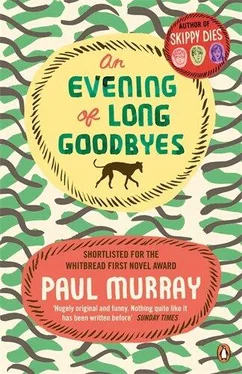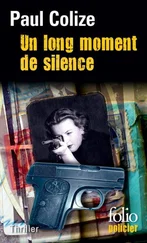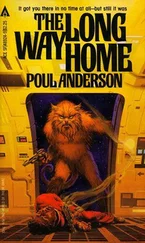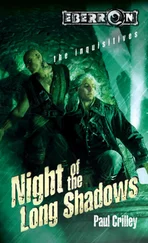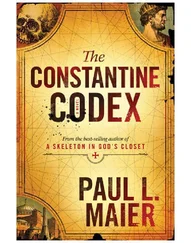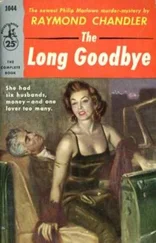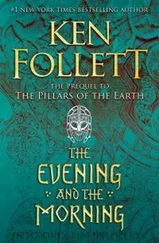I argued with him, needless to say; I threatened and cajoled him; I begged him to at least let me know who it was he was working for. He wouldn’t budge. All he would say was that it was nothing for me to be worrying about; nothing for me to be worrying about at all.
‘Que sera, sera,’ he said, ‘as the song goes.’
‘What?’ I whispered. ‘What do you mean?’
‘What will be will be, Mr H. What will be, will be.’ And he laughed: and then with a click the line went dead.
Maybe he was right; maybe they were all right, and I was blowing things out of proportion, and there was nothing really wrong; I did try to console myself with this thought. But then there had been nothing really the matter the time of the Episodes either, that’s what the doctors had told us; it was just a phase she would grow out of, that’s what they’d said as they bandaged her up and increased her dosage; cold comfort for those who had sat at her bedside and held her hand while she convulsed, or flailed at imaginary terrors, or lay for hours staring at us without recognition from the far side of wherever it was she had gone.
For a long time I sat with my hand over my mouth and my feet under the covers like two blocks of ice. And then — just when everything seemed at its most hopeless — Laura’s words came back to me. Why don’t you write a play ? She was the second person to say it: although Bel had been being sarcastic, and Laura was Laura, so I’d more or less dismissed it straight away. But now, as I thought about it, it seemed to make a kind of sense…
I stumbled into the living room. It was empty: Frank must have called Laura a taxi. I sat on the vacated sofa and stared interrogatively at the darkness. Of course! Write a play! How had I never thought of it before? If I was a Disadvantaged Artist they would have to let me back into the house!
And suddenly it struck me that perhaps Bel hadn’t been being sarcastic when she’d suggested it — that maybe on some unconscious level she’d meant it, was asking me to do it, in order to return to Amaurot and set things to rights. Maybe — feverishly, I half-stood, feeling the fabric of the sofa still damp with tears beneath my hand — maybe I was destined to write this play; maybe I had been cast out of the house precisely so I would write this play. A play that would set the record straight — a play that would see off Harry’s tepid little pantomimes of bourgeois guilt — an apologia for everything I had ever thought or done, a paean to a lost way of living, a rage against the dying of the light! To speak out at last, to show the world! I snatched up a pen and a sheet of paper from the sheaf set aside for my monograph. The apartment was utterly silent: a silence taut and quivering as the surface of a lake, as if the universe herself were saying to me, Now, now is the time, we cannot wait any longer — I took up the pen and, with a daunting sense that history was being made, wrote in the upper right-hand corner: Charles .
I sat back and surveyed my efforts. Charles . Good. I tapped the pen lid against the back of my teeth and pictured myselfback in my parlour, festooned with garlands and surrounded by worshipful ingénues eager to learn from the author of Charles . This page was very white, I noticed. Was it this particular brand, or was paper always this white? Someone else might find it disconcerting. Now! Now! Without delay! the universe pressed. Sinking the nib once more, I wrote by in front of Charles . Then, after Charles , I wrote Hythloday . After that I thought I might take a break, so I went to get a can from the refrigerator and switched on the television for a little while. Then, as the clock tolled for three, I was seized by inspiration. In one mad dash I wrote five entirely new words beside the three I had already written: the title, my title. It was a great title, a momentous title, holding within it all the joys and the sorrows, the mysteries and commonplaces of a life. I found myself brushing a tear from my eye.
With a title like that, most of the work was already done; but I was not letting up now. My mind raged with possibilities, witty characters, wise insights into the human condition. They could all be in it: Laura as a kind of ironical Greek chorus; Frank as basically an unfettered Id running around; then there was Mother (Fickleness of Women), Mirela (Desire, Impossibility of); Bel would feature as a one big Tragic Flaw, representing a society that had lost its way… Champing my pipe, I took a fresh page, and wrote at the top in capital letters: PLOT
Initially, the idea had been to have the play finished and presented to Bel before Harry’s new one opened, in the hope that they might scrap his and do mine instead. However, it takes longer than you might think, writing a play — if you want to do it right, I mean; and before we knew where we were, the opening night of Ramp was upon us.
They were still short of hands, so I had agreed to being temporarily unbanished in order to work as Hat-Check Girl for the evening. With some effort, I’d managed to persuade Frank to come along as moral support; Mother gave us a little table in the hallway from which to take coats and greet arriving personages. Outside, the night was cold and tingling, but here there were candles and sprays of autumnal wild flowers and warm smells enticing the guests down to the recital room, where they were received with claret, mulled wine, and music courtesy of Vuk and Zoran and some friends of theirs from the queue at the Registration Centre.
Whatever spell she had cast, no one seemed to have been able to resist Mirela’s invitation. An hour before the performance the house was bursting at the seams with heavyweights of the business world, each of whom Laura identified to Frank and me as they went by. (Laura had also volunteered to help out, even after I’d told her pointedly that it wouldn’t be necessary. Ever since Titanic she’d been around at the apartment practically every night — supposedly assisting Frank putting up bookshelves, though judging by the amount of giggling coming from his room it didn’t sound like she was being much help.)
‘There’s the French cultural attaché,’ she said, appearing in a puff of taffeta with her tray of vol-au-vents. ‘That’s Roly Guilfoyle, that chef? And there’s that guy from the beans company — oh, excuse me…’ as another personage arrived to check in her coat with the by now customary double-take, looking in alarm from my mummified face to Frank’s sadly unmummified one. ‘Thank you, madam, you’re number 105, straight through on the right…’
‘ Oh my God, the head of StoneWall Friends and Mutual is here. He is like the insurance guy in Ireland. He was in VIP last month, his bathroom has this kind of Etruscan design…?’
‘Well, go and give him a vol-au-vent, why don’t you? We’re busy here — Yes, sir, number 106, thank you. Yes, sir, quite safe. Yes, sir, I’m aware that they don’t grow on trees. You’re most welcome, sir — damn it, Frank, stop louring, can’t you? You’re scaring people…’
‘I’m not louring, Charlie, this is me regular face.’
‘Guys,’ Laura tiptoed over, muttering clandestinely from the corner of her mouth, ‘you are not going to believe who’s here. Niall O’Boyle.’ She pointed to a nondescript man in a blue suit whose face appeared to have been sat on at some crucial stage of its development.
‘Who?’
‘Niall O’Boyle? He’s like CEO of Telsinor Ireland? You must remember, last year when the phone company went public and he leveraged that buyout with those Danish guys? And he owns that radio station and that magazine, he must be worth stacks — oh my God, look at his watch, he has like the biggest watch I’ve ever seen…’
Читать дальше
